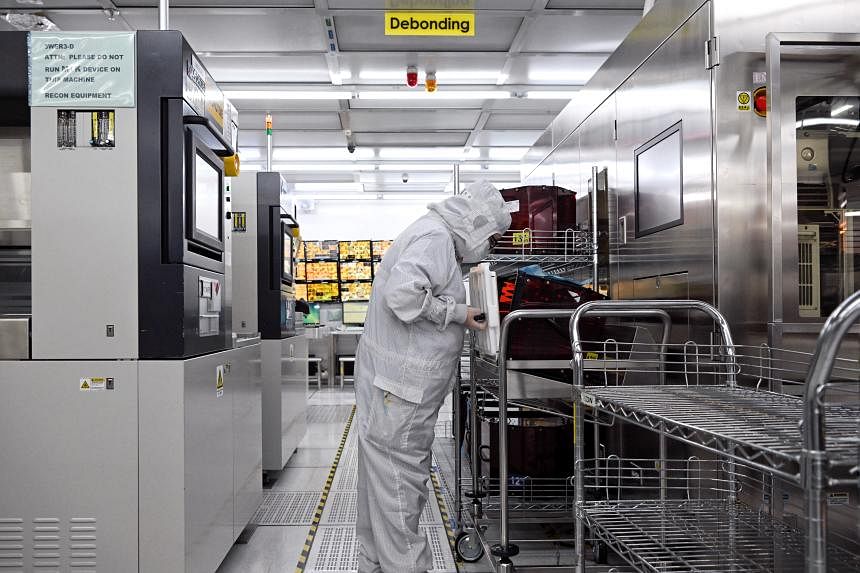GlobalFoundries' decision to expand its manufacturing base in Singapore has drawn praise from Deputy Prime Minister Lawrence Wong. Despite the intense global competition for high-end chip investments, Singapore's semiconductor industry is expected to remain strong, competitive, and vibrant. Mr. Wong emphasized that Singapore cannot engage in a subsidy arms race to outbid other countries like the United States, China, Japan, and the European Union, which have offered massive subsidies to attract chipmakers.

He highlighted several factors that contribute to Singapore's attractiveness as a semiconductor manufacturing hub. These factors include excellent connectivity, reliable and stable business conditions, and a critical mass of leading companies covering the entire value chain from design to wafer fabrication, assembly, and testing. Singapore's key asset is its human capital, representing a well-educated and highly skilled workforce that fuels innovation and research capabilities.
In addition to the advantages of its workforce, Singapore has established a niche in the production of specialty chips, which are in high demand due to trends in 5G, automotive, and the Internet of Things. Mr. Wong affirmed that Singapore will continue to enhance its capabilities and competitiveness in these areas of strength, and GlobalFoundries' investment serves as evidence of the success of these strategies.
The expansion of GlobalFoundries' plant will create up to 1,000 high-value jobs, with a focus on Singaporean talent. These individuals will gain valuable expertise in manufacturing and research and development through exposure to advanced technologies. GlobalFoundries has also been actively involved in Singapore's efforts to nurture students' interest and skills in science, technology, engineering, and mathematics, contributing to the development of a strong talent pipeline.
The expanded facility will be Singapore's first wafer fab capable of manufacturing specialty chips at 28 nanometers, which support a wide range of applications in consumer and industrial products. This indicates a high likelihood that future smartphones and electric vehicles will contain image sensors and radio frequency chips manufactured by GlobalFoundries in Singapore.
Mr. Wong lauded GlobalFoundries' commitment to research and development, emphasizing the company's partnership with local research institutions and ongoing projects with Nanyang Technological University (NTU) and the National Research Foundation. With over 700 research and development professionals, GlobalFoundries boasts one of the largest corporate R&D teams in Singapore.
As the world's third-largest contract chipmaker, GlobalFoundries has one of the largest wafer foundries in Singapore and employs over 4,900 people. The expanded fab will add an annual capacity of 450,000 wafers of 300mm each, bringing GlobalFoundries Singapore's total capacity to approximately 1.5 million wafers per year. Dr. Thomas Caulfield, the president and CEO of GlobalFoundries, expressed gratitude to customers, the Singapore government, and employees for their efforts in bringing the new site to fruition.
Despite current weak global demand for semiconductors, Mr. Tan Yew Kong, senior vice president and general manager of GlobalFoundries Singapore, anticipates that the new site will reach full capacity by late 2025 or early 2026. Conditions are expected to improve in 2023 when global semiconductor inventories are depleted, leading to an increase in new orders. At full capacity, GlobalFoundries Singapore is projected to contribute around 45% of the company's global revenue, up from its current contribution of approximately 33%.







